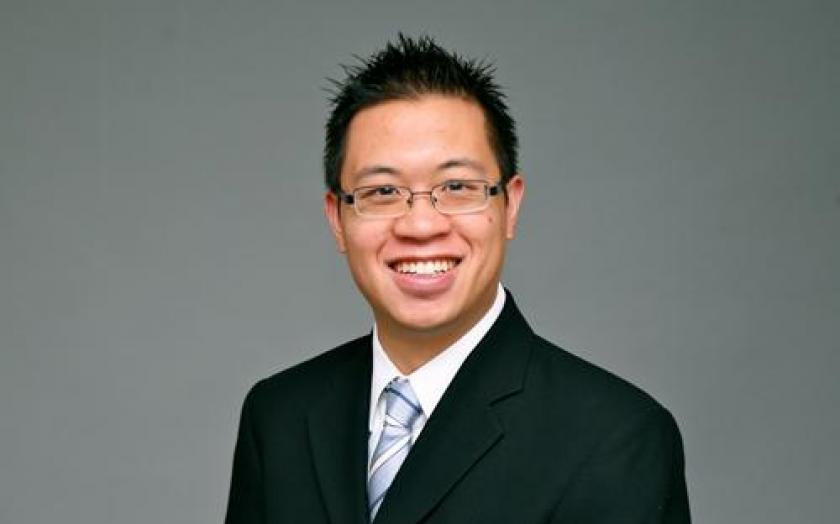October Faculty Spotlight - Ian Wong

Ian Wong received his AB magna cum laude in Applied Mathematics from Harvard University in 2003. He did his graduate work on the directed self-assembly of biomolecular materials with Nick Melosh, receiving a PhD in Materials Science and Engineering from Stanford University in 2010. His postdoctoral training in BioMEMS and cancer cell migration was with Mehmet Toner and Daniel Irimia at the Center for Engineering in Medicine of Massachusetts General Hospital and Harvard Medical School from 2010-2013. He joined Brown University in July 2013. He is a recipient of an NSF Graduate Research Fellowship, the Damon Runyon Cancer Research Fellowship and the Brown University Pierrepont Award for Outstanding Advising.
1) When did you know you wanted to be a biomedical engineer/researcher?
Growing up my parents were both professors so it could be argued that I didn’t know any better. I do think that growing up in that environment had a strong influence. As far as selecting the area of interest, it was a semi-random decision. I worked in a materials lab in high school and then when I got to college I found a professor that was interested in soft materials and started working in his lab and liked it. I also think working in this area provides you with a useful way of looking at the world. My detour towards cancer was also somewhat random because in doing soft materials research one I developed a core set of skills that are useful for some biomedical problems. For example one of the things my postdoc lab focused on was separating one type of tumor cell from regular blood cells. This could be done by creating a nanomaterial that selects for this one type of cell or by measuring material properties of the normal blood cells and the cancer cells and being able to identify and separate them based on those properties.
2) Of all of the publications you have written, is there one that you are most proud of? Why?
That’s hard. It’s like picking a favorite child! I think the Nature Materials was the biggest battle. I like it because it’s a combination of all of the techniques that I’ve developed. We designed an obstacle course for the cells and have been able to use computational techniques to see which cells performed well and which didn’t and then we’ve been able to develop a materials science model that’s able to explain what we see. I feel this work exemplifies my approach to science. The first round of reviews was reasonable, but it’s always reviewer #3 that is the challenge. They kept requesting more experiments that didn’t change the outcomes of the work much and it was hard to finish because by this time I had moved to Brown.
3) Did you ever do experiments that didn’t work?
All of my experiments don’t work the first time around. I also had one grant proposal that I really like but just got terrible reviews. I got the worst score I’ve ever gotten on a review, but I still think it’s a cool idea! Traditionally people put together environments on coverslips with patterning and this often works once, but then may not be reliable or reproducible. I want to create “Lego-like” microfluidic pieces that can be put together to make customized and reproducible patterns. I recognize that there are reasonable concerns with it and it will be expensive, so I’m inclined to let it rest for now, but I think sometime I should try it. It’s a bit high-risk for a student because if it doesn’t work they might end up with only plastic widgets.
4) How do you choose the projects your group works on?
I have a dream of running my lab like google. My students have at least one primary project that they spend the majority of their time on but then I want them to have 20% of the time to roam free and do something they think is cool. Sometimes that works, sometimes it doesn’t. Students’ projects depend on their background. Basically, there are three arms of research in my lab: biological, fabrication, and quantitative. I have some cancer biologists who focus more on cell-based and molecular questions and materials scientists who focus more on fabrication. It’s hard to find someone good at both.
5) What three qualities are most important for ensuring success as a young researcher?
Persistence, passion, open-mindedness.